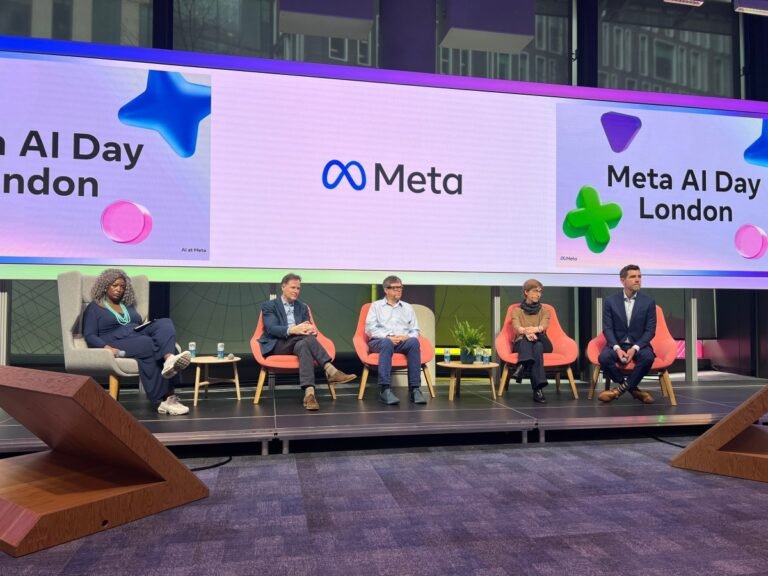
The Oversight Board, Meta’s semi-independent policy council, it turning its attention to how the company’s social platforms are handling explicit, AI-generated images.
Tuesday, it announced investigations into two separate cases over how Instagram in India and Facebook in the U.S. handled AI-generated images of public figures after Meta’s systems fell short on detecting and responding to the explicit content.
In other words, after two reports, the explicit AI-generated image remained on Instagram.
The second case relates to Facebook, where a user posted an explicit, AI-generated image that resembled a U.S. public figure in a Group focusing on AI creations.
Meta’s response and the next stepsIn response to the Oversight Board’s cases, Meta said it took down both pieces of content.

Monday’s announcement arrives on the heels of Meta prompting Quest users to confirm their age so it can provide teens and preteens with appropriate experiences.
Meta said it will launch it first in the 20 markets where it already supports Quest for Business, Meta’s workplace-focused $14.99/month subscription.
It’s not clear how ubiquitous VR use is in schools: one provider, ClassVR, claims that 40,000 classrooms worldwide are using its products.
And another big question mark will relate to the cost of buying headsets — Quest 3’s, the latest headsets, start at around $500 apiece for basic models — buying apps and then subsequently supporting all of that infrastructure.
Meta said that it has already donated Quest headsets to 15 universities in the U.S., but it’s not clear how far it will go to subsidise growth longer-term.

Meta said on Monday that it plans to “temporarily” shutter Threads in Turkey from April 29, in response to an interim injunction imposed by the Turkish competition authority last month over the way Meta shares data between Threads and Instagram.
In 2022, Turkey imposed a $18.6 million fine on Meta for combining user data across Facebook, Instagram and WhatsApp.
Initially, the only way Meta allowed users to delete a Threads profile was by deleting their whole Instagram account, though it later introduced a separate mechanism for those wishing to ditch their Threads profile only.
Turkish regulators had announced the investigation on the way Meta linked Threads with Instagram in December, concluding last month that there was a strong case to answer for.
The latter of these options means a user’s profile can be resurrected when and if Threads is available in the country again.

Additionally, in a notable step last month, the European Union opened a formal investigation into whether Meta’s tactic breaches obligations that apply to Facebook and Instagram under the competition-focused Digital Markets Act (DMA).
The Board’s opinion on “consent or pay” is expected to provide guidance on how the EU’s General Data Protection Regulation (GDPR) should be applied in this area.
It’s worth noting the Board’s opinion will look at “consent or pay” generally, rather than specifically investigating Meta’s deployment.
Nor is Meta the only service provider pushing “consent or pay” on users.
“However, the current ‘Consent or Pay’ model sets in stone a coercive dynamic, leaving users without an actual choice.

Tesla drops prices, Meta confirms Llama 3 release, and Apple allows emulators in the App StoreHeya, folks, welcome to Week in Review (WiR), TechCrunch’s regular newsletter that recaps the past few days in tech.
Google’s annual enterprise-focused dev conference, Google Cloud Next, dominated the headlines — and we had plenty of coverage from the event.
Lorenzo wrote about how hackers stole over ~340,000 Social Security numbers from government consulting firm Greylock McKinnon Associates (GMA).
Elsewhere, Sarah had the story on Spotify’s personalized AI playlists, which lets users create a playlist based on written prompts.
Emulators in the store: Apple updated its App Store rules to globally allow emulators for retro console games an option for downloading titles.

Apart from testing Meta AI chatbot with users in countries like India on WhatsApp, the company is also experimenting with putting Meta AI in the Instagram search bar for both chat with AI and content discovery.
The search query in the search bar leads you to a conversation in DM with Meta AI, where you can ask questions or use one of the pre-loaded prompts.
Separately, a few users TechCrunch talked to were able to ask Meta AI to search for Reels suggestions.
Meta confirmed its Meta AI experiment on Instagram with TechCrunch.
You can find a ton of posts about the quality of Instagram search.

WhatsApp is testing Meta AI, its large language model-powered chatbot, with users in India and some other markets, signalling its intentions to tap the massive user base to scale its AI offerings.
The company recently began testing the AI chatbot, until now available in the U.S., with some users in India, many of them said.
India, home to more than 500 million WhatsApp users, is the instant messaging service’s largest market.
Meta unveiled Meta AI, its general-purpose assistant, in late September.
The AI chatbot is designed to answer user queries directly within chats as well as offer them the ability to generate photorealistic images from text prompts.

Meta has announced it’s testing new features on Instagram intended to help safeguard young people from unwanted nudity or sextortion scams.
This includes a feature called Nudity Protection in DMs, which automatically blurs images detected as containing nudity.
Nudity screensNudity Protection in DMs aims to protect teen Instagram users from cyberflashing by putting nude images behind a safety screen.
But Meta is taking a further step of not showing the “Message” button on a teen’s profile to potential sextortion accounts, i.e.
For example, in July 2021 Meta switched to defaulting young people’s Instagram accounts to private just ahead of the UK compliance deadline.

Meta, hell-bent on catching up to rivals in the generative AI space, is spending billions on its own AI efforts.
But an even larger chunk is being spent developing hardware, specifically chips to run and train Meta’s AI models.
Meta unveiled the newest fruit of its chip dev efforts today, conspicuously a day after Intel announced its latest AI accelerator hardware.
Google this week made its fifth-generation custom chip for training AI models, TPU v5p, generally available to Google Cloud customers, and revealed its first dedicated chip for running models, Axion.
Amazon has several custom AI chip families under its belt.

“Our goal over time is to make a Llama-powered Meta AI be the most useful assistant in the world,” said Joelle Pineau, Vice President AI Research.
Most notably, Meta’s Llama families, built as open-source products, represent a different philosophical approach to how AI should develop as a wider technology.
But Meta is also playing it more cautiously, it seems, especially when it comes to other generative AI beyond text generation.
Ironically — or perhaps predictably (heh) — even as Meta works to launch Llama 3, it does have some significant generative AI skeptics in the house.
It’s not generative AI,” he said.













